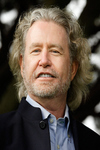Day 2 :
Keynote Forum
Trevor Griffiths
Oxford University, UK
Keynote: Emotional Chaos Theory and the Emergence of Resilience
Time : 10:00-10:30

Biography:
Trevor Griffiths studied medicine at Oxford University. He was a pioneering UK family physician for 25 years, where he developed Emotional Logic as a lifelong learning approach to promote physical health and social wellbeing. He founded the Emotional Logic Centre, and now full-time trains tutors internationally who promote healthy adjustment to change by character development in schools, healthcare, business and church settings. He has developed and published theory to account for the rapid changes in personal identity and social character that can follow when understanding how emotions have a social, systemic purpose.
Abstract:
Resilience is defined as the constructive ability to manage multiple small losses and worries about loss that can accumulate in any social setting within setbacks, disappointments and hurts. These un-named ‘hidden losses’ each starts their own emotional loss reaction, all of which occur simultaneously when the stressing situation is remembered. Tools have been developed (card sorting, and Loss Reaction Worksheets) that can kinesthetically map the resulting emotional chaos. Habitual or fleeting ‘whirlpools of emotion’ can thus be identified, which make people feel stuck in the situation with tension, distress or confusion, and generate behavioral reactions. These may be diagnosed as illness, bad social character or personality disorder, and may lead people to adopt a victim status to justify their behavior, or to seek help to find a way out. The Emotional Logic Centre teaches that these are adjustment reactions complicating normal and healthy grieving for un-named values. Emotional Logic is a lifelong learning approach to improve understanding, self-respect and strength of character, by which people learn a solution-focused, action-planning way out of the identified emotional chaos. It provides an approach to adjustment that says there are no negative emotions, only unpleasant ones that have useful purposes to activate adjustment in social settings. The assertive action plan removes the victim status, and enables exploration of new ways to live by renewed, empathic relationship building. Resilience thus becomes a teachable life skill to manage setbacks, disappointments and hurts constructively by conversational methods.
Keynote Forum
Liat Korn
Ariel University, Israel
Keynote: Resilience following exposure to traumatic events- The moderating effect of religiosity on post trauma amongst students studying under a high level of terror event exposure

Biography:
The goals of this study were to examine the development of affective and behavioral changes following exposure to traumatic events amongst Israeli students studying under a high level of terror event exposure and to assess the effects of religiosity on those changes development. A questionnaire was administered to 770 students in the Ariel University. Higher levels of terror exposure were associated with higher levels of avoidance behavior, subjective feelings of insecurity, and emotional distress. Higher religiosity moderated avoidance behavior, even when controlling for the level of objective exposure to terror events exposure, but had no influence on subjective sense of insecurity, or the level of emotional distress. These findings suggest that religiosity moderates behavioral changes development after traumatic event exposure mainly by reducing avoidance behavior.
Abstract:
Resilience following exposure to traumatic events- The moderating effect of religiosity on post trauma amongst students studying under a high level of terror event exposure
- Resilience and Ability, Individual and their Adaptations & Communicating Research Work Programs to foster HR
Session Introduction
Karen Wolford
State University of New York, USA
Title: Title: Title – MBSR from Lab to Mobile App: iCorps and the Development Process

Biography:
Karen Wolford earned her PhD in clinical psychology from Oklahoma State University. She has been a faculty member in the Psychology Department at SUNY Oswego since 1988. She is currently the Coordinator of the Interdisciplinary Graduate Certificate in Trauma Studies since 2012. Arthur Delsing is a graduate student in the Human Computer Interaction masters program at SUNY Oswego. This presentation is based on research funded by the National Science Foundation, ICorps program
Abstract:
Mindfulness Based Stress Reduction (MBSR) has been shown to be effective as a transtherapeutic adjunctive approach for depression, anxiety, stress and chronic pain. An online, 6-week MBSR intervention with Veterans shows that mindfulness can be successfully established in those with PTS symptoms (Dessa Bergen-Cico, et. al., 2015). PTSD, which is now referred to as a Trauma and Stressor Related Disorder in DSM 5, 2013, is frequently comorbid with depression as are other anxiety disorders (NIMH, 2014). ICorps presents an opportunity to explore translation of this research to development of a useful product via dedicated business training and customer discovery efforts. The goal to develop a mobile app that is flexible and can address more than just PTSD seems important. The app plans to address many aspects of empirical MBSR research. Since adherence is necessary to establish Mindfulness, adding incentives for completion of tasks would enhance motivation (badges, positive affirmations, etc.). Social support is also key in recovery from traumatic stress (Dass-Brailsford, 2007), therefore helping users suffering from trauma find a way to create their support network may be a key factor in such an app. Lastly including service links to suicide prevention is recommended. Possible expansion of this app to other populations continues to be explored.
Sinead King
Kings College London, UK
Title: Predicting OutcoMe following Psychological Therapy (PROMPT) in IAPT: a naturalistic project protocol

Biography:
Sinead King has completed her MSc at the age of 24 years from the Institute of Psychiatry, Psychology and Neuroscience at Kings College London, University of London and is currently in the process of beginning her PhD there. She has recently published a paper in BMC Psychiatry along with her colleagues who are experts in the field, on a major project she is currently working on which investigates the biological, psychological and social factors that are related to recovery and non-recovery in an Improving Access to Psychological Therapy Service
Abstract:
Depression and anxiety are highly prevalent and represent a significant and well described public health burden. Whilst first line psychological treatments are effective for nearly half of attenders, there remain a substantial number of patients who do not benefit. The main objective of the present project is to establish an infrastructure platform for the identification of factors that predict lack of response to psychological treatment for depression and anxiety, in order to better target treatments as well as to support translational and experimental medicine research in mood and anxiety disorders. Predicting outcome following psychological therapy in IAPT (PROMPT) is a naturalistic observational project that began patient recruitment in January 2014. The project is currently taking place in Southwark Psychological Therapies Service, an Improving Access to Psychological Therapies (IAPT) service currently provided by the South London and Maudsley NHS Foundation Trust (SLaM). However, the aim is to roll-out the project across other IAPT services. Participants are approached before beginning treatment and offered a baseline interview whilst they are waiting for therapy to begin. This allows us to test for relationships between predictor variables and patient outcome measures. At the baseline interview, participants complete a diagnostic interview; are asked to give blood and hair samples for relevant biomarkers, and complete psychological and social questionnaire measures. Participants then complete their psychological therapy as offered by Southwark Psychological Therapies Service. Response to psychological therapy will be measured using standard IAPT outcome data, which are routinely collected at each appointment

Biography:
Christine Fu, PhD, is a Senior Program Research Specialist at World Vision United States, where she designs and carries out primary and secondary research and analysis on program effectiveness. Dr. Fu is a social and behavioural scientist with seven years of experience evaluating public health and poverty reduction programs in resource-poor settings internationally and domestically. She has expertise in quantitative and qualitative methods and research and evaluation designs. Dr. Fu has experience conducting social science evaluation of child well-being programs, as demonstrated by her research on disaster mental health and psychosocial supports of children and youth in China, psychosocial rehabilitation and recovery of out-of-school youth in Liberia, adolescent sexual and reproductive health and gender-based violence in Uganda, and peer networks and social capital among HIV positive youth in the Caribbean. In addition, Dr. Fu has research experience in development economics and the multi-dimensionality of poverty, as demonstrated by her work on poverty-reduction and social development initiatives for the Poverty Reduction and Economic Management team at the World Bank.
Abstract:
Various pathways in early life expose individuals to a host of factors that affect later health and well-being outcomes. Using the life course development model allows researchers to develop a better understanding of human development and the promotion of resilience in the face of adverse shocks and stresses. The model builds on the life stage models, tracing the developmental processes that occur throughout the life span. We used the life course development model to assess well-being outcomes through dyad interviews between caregivers and adolescents aged 12 to 17 years living in conflict- and tsunami-affected areas in eastern Sri Lanka. The study will interview 30 to 40 adolescents along with their caregivers. Domains explored in the interviews include social supports, household exposure to shocks and stresses, coping strategies, school/work and future aspirations and expectations. Interviews will be recorded and transcribed. Data will be analyzed using Nvivo software with a set of predetermined codes. The research team will develop new thematic codes during data analysis using a grounded theory approach. We anticipate findings to illustrate the negative effects of intergenerational poverty, prolonged conflict and natural disasters on the developmental trajectories of children living. In addition, data should also elucidate the factors, processes and pathways that protected or buffered children and households in the face of poverty and associated risks.
Rita Berto
University of Padova, Italy
Title: The engagement of fascination in the environment: Content or process?

Biography:
Rita Berto, Ph.D., is a psychologist specialized in environmental psychology. She was Visiting Research Associate in Psychology (Honorary) at the Washington University in St. Louis (MO, USA), and professor of Environmental Psychology and Cognitive Psychology at the University of Padova. She conducts research on environmental preference from the life-span perspective, on the effects of exposure to natural environment on cognition, and on biophilic architecture. She is appointed reviewer for the most important journals of Environmental Psychology, her biography was included in Who’s Who in the World 2007. She is author of a book on Environmental Stress
Abstract:
Literature shows that restoration from stress and mental fatigue relates to exposure to Nature. Mental health services engage nature-related programs to provide opportunities that enhance multiple aspects of health and wellbeing. According to the Attention Restoration Theory, performance benefits from exposure to environments attracting effortless involuntary attention and demanding little voluntary attention; this process called fascination, mostly occurs in natural environments. The aim of this study was to verify whether the voluntary vs. involuntary attention is engaged by the naturalness category or by fascination itself. To this end the LZW algorithm was used to quantify the information to be processed in a scene of thirty-eight images depicting natural and built scenes, with both groups spanning the entire fascination range. Results showed that scenes that contain little redundancy are more fascinating, and natural scenes do not necessarily lead to more fascination than built scenes. However it is the combination of natural and built elements which invokes fascination, rather than the sheer number of visible natural elements. To know that also urban scenes may be highly fascinating can be of great help to city planners to promote psychological well-being as one aspect of public health (biophilic architecture), because urban environments should not compromise people’s need for mental restoration.

Biography:
Kutcher is an internationally-renowned expert in the area of adolescent mental health and a national and international leader in mental health research, advocacy, training, policy, and health services innovation. Kutcher has been Head of the Department of Psychiatry, Dalhousie University and served as Associate Dean of International Medical Development & Research with the Faculty of Medicine. In these capacities he led the development of the Life Sciences Development Association, the Brain Repair Centre, and the International Health Office. He is also the Director of the World Health Organization Collaborating Centre in Mental Health at Dalhousie. He is the author of more than 200 scientific papers, author/co-author of a number of medical textbooks, has edited the Child and Adolescent Psychopharmacology News and has been a consultant to various organizations on issues pertaining to mental health treatments and program reviews in children, adolescents and adults alike. Kutcher will speak to the Dalhousie Academy of Medicine March 18, 2010 at 7:00 PM on: “Modern teens, their brains and their lives - a primer for grandparents.â€
Abstract:
Mental health literacy is the foundation for mental health promotion, prevention, intervention and care. Mental health literacy must be developed in a manner consistent with the social ecology of the recipient and based on the best available scientific information. It is essential that young people become mentally health literate. An important route to achieve this is to embed mental health literacy in schools through interventions that are built on existing school ecologies, use well established and globally applicable processes that do not require fidelity of application but that can obtain similar and significant positive results everywhere they are applied. An innovative and novel approach to embedding mental health literacy for youth and teachers through school curriculum resources has been applied and evaluated in numerous different locations across Canada with highly positive results in mental health literacy for youth and teachers alike. This presentation will review the importance of mental health literacy as a foundational construct for health and well-being and will provide detailed information on the successful application of this approach in junior high, secondary and post-secondary settings.
Paul A. Klaczynski
University of Northern Colorado, USA
Title: Adolescents Obesity Stereotypes and Eating Disorders: Moderating Effect of Culture and Age

Biography:
Paul A. Klaczynski obtained his developmental psychology PhD in 1989 from West Virginia University and completed his postdoctoral studies at the University of Utah. His research focuses on developments in judgment heuristics, obesity stereotypes, and stigmatization. He is a former director of NSF's developmental and Learning Sciences Program, has published more than 50 papers in reputed journals, and has served as a member of several distinguished editorial boards.
Abstract:
In Western cultures, obesity stereotypes not only increases in strength from late childhood through adolescence but are also related positively to eating disorder-related beliefs and cognitions. To examine whether these associations differed by both age and culture, 213 Chinese and American 11-16 year-old girls completed measures of obesity stereotypes and risky eating behaviors and beliefs (e.g., actual-ideal body image discrepancies, appearance beliefs, attitudes toward eating). Negative obesity stereotypes increased with age in both countries, although this age-related increase was steeper for American adolescents. However, whereas predictors of eating disordered thinking (EATPROB) increased with age in the American sample, they did not in the Chinese sample. A moderated moderation analysis, with obesity stereotypes as the independent variable, and age and country as potential moderators indicated a significant Age x Country x Obesity stereotype interaction, suggesting that the obesity stereotype-EATPROB relationship was moderated by age and country. Additional analyses indicated that obesity stereotypes directly "affected" EATPROB for older, but not younger American girls. By contrast, the obesity stereotypes of younger, but not older, Chinese girls directly "affected" EATPROB. These findings suggest eating-disordered beliefs are a codetermined by developments in obesity stereotypes and cultural differences in the origins of both obesity stereotypes and eating disorders.
Chien-Han Lai
Cheng Hsin General Hospital, Taiwan
Title: Increased fractional amplitude of low-frequency fluctuations in cingulate cortex and postcentral gyrus of remitted patients with panic disorder

Biography:
Lai is a clinical and scientific psychiatrist. His current research field focused on applications of clinical rating scales in depression, psychopharmacology, brain structure analysis, resting-state functional magnetic resonance imaging, diffusion tensor imaging of major depressive disorder and panic disorder, effects of psychotropic medicine (especially antidepressant and atypical antipsychotic) in brain. He already published several SCI articles in the field of brain imaging and questionnaire of depression and panic disorder. He also plays the roles of reviewer and editor in several SCI journals.
Abstract:
The default brain activities in the treatment of panic disorder (PD) are not studied well. So we designed this longitudinal study to survey the accompanying changes of fractional amplitude of low-frequency fluctuations (fALFF) when panic disorder (PD) patients achieved remission within 6 weeks. We enrolled twenty-one patients to finish the 6-week treatment of antidepressant with remission. They all received resting-state functional magnetic resonance imaging (RFMRI) scans at baseline and 6th week. In addition, twenty-one healthy controls were scanned twice within 6 weeks to exclude the inter-scan bias. The RFMRI images were analyzed by REST toolbox (resting-state functional MRI data analysis toolbox) to obtain the fALFF data of patients and controls at baseline and 6th week. The treatment-related effects and group-related effects were derived from the ANCOVA test of patients (at baseline and remitted status) and group differences between patients and controls. The treatment-related effects showed that increased fALFF in right middle cingulate cortex and left postcentral gyrus after remission in PD patients. The improvements of panic severity also correlated positively with the increases in fALFF of the right middle cingulate cortex. The residual fALFF group-related differences between remitted PD patients and controls were found in the occipital lobe and thalamus. The remission of PD would accompany with the increases in fALFF of cingulate-postcentral gyrus. The residual occipito-thalamic differences would still exist even after remission.
Karline Wilson-Mitchell
Ryerson University, Toronto
Title: Exploring Resilience in Jamaican Adolescent Mothers

Biography:
Karline Wilson-Mitchell RN, RM, CNM, MSN has been practicing midwifery since 1992 and has been on the Midwifery Education Program Faculty at Ryerson University since 2008. She continues to support and mentor in the Chang School’s International Midwifery Preregistration Program. She previously taught in the Nursing Program at Florida International University, Miami and preceptored for the Midwifery Program at U of Miami. She has practiced in Florida, North Carolina, Georgia and Ontario both in large hospital-run midwifery practices and private clinic -based practices. Karline’s interest in international health and health policy stems from years of working with international nursing and midwifery students as well as clients.
Abstract:
For many adolescents, motherhood is unplanned and so requires exceptional resilience. This was a key finding in a study of 46 Jamaican pregnant adolescent mothers attending antenatal clinics in Jamaica. Of the 30 adolescents who participated in individual interviews, 7 cases were referred for counseling due to their need for emotional and psychological support. One of the adolescents reported recent sexual violence and another reported having experienced childhood sexual abuse. In addition, 2 cases of suicidal ideation or attempts were identified. Amongst the 2 focus groups, the 16 participants provided insights into their experience following contact with the healthcare system and environment in which they lived. For these young mothers, pregnancy may follow experiences of reproductive coercion, violence, poor social support and limited access to reproductive health information. Yet, most of the mothers were able to overcome social challenges, become future oriented and demonstrate resilience. The venue in which maternity care is provided can help to support social capacity and resiliency in these young mothers. This paper proposes a model of care delivery informed by Antonovsky’s Sense of Coherence framework and provides psychological counseling, access to activities that build agency and decision-making, and the provision of respectful, culturally safe care by engaged healthcare providers.
Andrea Cardenas Jimenez
Universidad Nacional de Colombia, USA
Title: Resilience and Disability: Life Oral History in Ecological Perspective

Biography:
Andrea Cárdenas-Jiménez is a woman with disability, who knew resilience across her academic education as psychologist and her personal experience with social inclusion, especially inclusive education. She is Universidad Nacional de Colombia graduate, where by her Public Health MA, has achieved to stablish links between phisical, social and cultural environment and individual processes, particularly resilience. She is co-resercher in Discapacidad, PolÃticas y Justicia Social research group (2009 at present). She is author of publications related to resilience and disability, between them book Familia y Capacidades Diferentes: Una Oportunidad para Crecer, with Marisol Moreno, and Analysis Matrix of Resilience in the Face of Disability, Old Age and Poverty in the International Journal of Disability, Development and Education, with Alba Lucero López. She had represented Universidad Nacional de Colombia in diverse national and international académic events.
Abstract:
This study`s purpose was to identify, from an ecological perspective, which processes contribute to resilience in four persons with disabilities members of the Universidad Nacional de Colombia. This study was a qualitative research, developed using Life Oral History as research method and the Leininger´s four steps method as data analysis strategy. Findings showed that the most relevant processes for resilience are found at the micro-systemic level: individual, familiar, educative and social However, meso-systemic and macro-systemic levels had provided both risk and protective factors for resilience development, too. In conclusion, as a result of transactions intra and between multiple context levels across the time, individuals with disabilities in this study have achieved expected targets of development for every life stages, overcoming adversity associated with disability and reaching performance levels higher than their pairs in academic, professional and social fields.
Joel Vos
University of Roehampton, UK
Title: Experiencing meaning in life as way to cope with adversity and stress: a review of four case studies

Biography:
The lectures and workshops that I give tend to focus on conducting scientific research in counseling psychology, and on existential psychology. Many research projects are collaborations with some of the best institutes in the world, e.g. NHS London, Leiden University Medical Center, Memorial Sloan Kettering Cancer Center New York, and Twente University
Abstract:
It is unavoidable that we will face limitations and challenges in life. How individuals cope with adversity and stress, depends on many factors. One of the potential beneficial factors that can help individuals is experiencing meaning in life. The updated stress-coping model (Park & Folkman, 1997) indicates that individuals often cope with stressful situations by accommodation and assimilation of the stressful life event in relation to a pre-existing sense of global meaning in life. Many studies have empirically validated and extended the important role of meaning-oriented coping. However, many of these studies are presented in academic terms, which can hinder an inside understanding of the lived experience of clients. Method: Four case studies of individuals in adverse life situations will be systematically reviewed, with an explicit attention to the role of meaning in life. This will show how theory on meaning-related coping can be applied to individual cases. These case studies are chosen because these individuals have explicitly discussed how they coped with their adverse life situation, and explicated the role of meaning-related coping. Results: The first case study is the book Man’s search for meaning from the psychiatrist Victor Frankl. In this book, he describes his experiences as a prisoner in a concentration camp during the second world war. He writes how prisoners who were able to experience meaning in life were mentally and physically better able to cope with their situation. Frankl describes several potential sources of meaning, such as history and legacy, experiencing, productivity and creativity. These experiences led Frankl to conclude with Nietzsche: ‘he who has a why to live for, can deal with any how’. The second case study is the book Miracle in the Andes by Nando Perrado. He describes how his airplane crashed in the Andes, where he had to survive for 72 days and trekked through high mountains to find rescue. He writes that it was the love for his father, and the prospect of his daily life at home, that helped him through the adversity. He describes the different coping responses of the other victims, and writes how the mental and physical state quickly deteriorated of those who did not want to be involved in any meaningful daily life routine and did not try to focus on anything meaningful. The third case study describes the experiences of a journalist who was diagnosed with breast cancer in her thirties. She has shared her experiences in a book submitted for publication. She describes how she experienced it as helpful to focus on meaningful activities, such as the routine of caring for her children and her terminally ill mother, and writing as a journalist about her own experiences. In her book, she describes that she met several mothers of class mates of her children who were also diagnosed with cancer; some of these women seemed to deny their situation, which seemed to hinder their psychological improvement. The fourth case study is the story of a political refugee from Iran. He told the author how his work as an artist has been his safe haven during times of adversity. However, he told how his artwork started to change, as he started to use other painting styles. Parallel to this artistic change, he started to experience severe post-traumatic distress. Traditional psychological treatment didn’t work for him, but when he started to acknowledge the role of art in coping with his stress and he could understand and accept his artistic changes, all symptoms disappeared. Discussion: Although these are four dissimilar case studies, all individuals point at the important role of experiencing meaning in life to cope with adversity in life. Meaning in life is a changeable dynamic phenomenon, as all individuals experienced changes in priorities in life, but –despite these changes- all acknowledged the importance of focusing on existential topics. Experiencing meaning in life corresponds with other psychological phenomena, such as hope and optimism, but it cannot be reduced to these phenomena. Implications for research and psychotherapeutic practice will be discussed.
Luisa Massimo
INTAS, Brussels.
Title: From Resilience to Empowerment: the Path of Childhood Cancer Survivors

Biography:
Professor Emeritus of Pediatrics of the “G.Gaslini†Scientific Children’s Hospital. Adviser for international affairs and adviser for Psycho-Oncology. Secretary of the Commission “Pediatrics†at the College of Physicians of Genova. Expert Reviewer for European Commission Framework Programme 7th research proposals in bioethics and life sciences, Brussels. Director of the Courses of Pediatric Oncology at the International School of Scientific Culture “Ettore Majorana†(Erice Sicily, Italy). CURRENT RESEARCH INTERESTS: Pediatrics, Pediatric Hematology/Oncology, Bioethics, Health Management, Psychology and quality of life
Abstract:
Treatment outcomes in childhood cancer patients have dramatically improved over the last 40 years, achieving a survival rate above 80%. At the same time, with increased survival the delayed effects linked both to therapies and to the psychosocial implications of the disease itself have become manifest. Those most commonly identified, but in a low percentage, are an increased incidence of organ defects, growth retardation, sterility, second malignancies, and neuropsychological and cognitive disturbances. Published reports on the late health effects and quality of life in childhood cancer survivors focus principally on current perceptions of prominent indicators like social life, education, occupation, fertility and marriage. Recently, a number of national pediatric oncology societies have enlisted television and film industry celebrities in media campaigns that seek to debunk a common misperception, namely, the tragic story of the illness and death of a child accompanied by the usual dose of tear-jerking melodrama. The message we want to give to the general public is that leukemia and cancer can be cured. The International Society of Pediatric Oncology (SIOP) has set up a highly skilled working group made up of teenagers and young adults who have been cured. It is possible to meet them at conferences all over the world, where they participate in passionate and lively discussions, all the while displaying a very high degree of maturity and self-awareness. It is a fact that, among former cancer patients that have been cured and grown into adults, social exclusion and substance abuse are virtually non-existent. They can often be heard speaking with the confident voice of a winner, of someone who has survived the shipwreck and has reached a safe port after battling through the waves

Biography:
Although Nancy Solari is legally blind, she has never lost sight of her vision for the future. Today, she is a successful business owner, life coach, radio host of Living Full Out Radio ABC in Los Angeles, speaker and author. Nancy brings her life lessons to audiences, inspiring people to push through their challenges and live life full out
Abstract:
During Nancy’s presentation she will guide attendees through goal setting practices to assist in identifying professional purpose. This will enable attendees to take on their everyday tasks effectively. Attendees will acquire techniques to evaluate their abilities and recognize their strengths through lecture and discussion, creating a strong resilience to adjustments in unfamiliar circumstances. During the lecture, she will introduce valuable planning skills along with beneficial cooperative networking strategies to assist in broadening their resources within their profession. She will guide attendees through exercises that will improve leadership skills, pushing them to motivate themselves as well as their peers when facing difficulties in transitioning between jobs and projects. Attendees will leave with positive attitudes towards accomplishing their goals and handling life’s unpredictable changes. Nancy will leave the attendees with a rejuvenated sense of self, opening a gateway of new found opportunity to live their lives full out
Ronald A. Alexander
OpenMind Training, USA
Title: Mindfulness, Stress & Trauma: A New Key to Creating Resiliency

Biography:
Ronald A. Alexander, Ph.D. is a licensed psychotherapist, leadership consultant, international clinical trainer, and the author of the widely acclaimed book, Wise Mind, Open Mind. He is the Executive Director of the OpenMind Training® Institute in Santa Monica, a leading edge organization that offers personal and professional training programs in integrative mind-body therapies, transformational leadership, and mindfulness. His unique method combines ancient wisdom teachings with positive psychology and creative thinking into a comprehensive integrated mind-body program. This system combines techniques that support strategies of personal and clinical excellence and growth. Alexander is a leading pioneer in the fields of Gestalt Therapy, Somatic Psychotherapy, Ericksonian Mind-Body Therapies, Holistic Psychology, Mindfulness, Leadership Coaching, and Integrative and Behavioral Medicine. He is a long time extension faculty member of the U.C.L.A. Departments of Humanities, Social Sciences, and Entertainment and a lecturer in the David Geffen School of Medicine as well as an adjunct faculty member at Pacifica Graduate Institute and Pepperdine Universities. He is an associate member of the American Psychological Association, a clinical member of the California Association of Marriage and Family Therapists and a Diplomate in professional psychotherapy in the International Academy of Behavioral Medicine and Counseling. Alexander has been teaching clinical training groups for professionals in Mindfulness based Psychotherapy and Ericksonian Mind-Body therapies since 1970. He actively teaches and trains psychotherapists, applying the principles of Mindfulness based integrated psychotherapy in the U.S., Canada, Europe, Russia, Japan, London, Ireland, the Netherlands, Australia and Asia
Abstract:
The resources for healing live in our somatic core self. Accessing these resources facilitates the healing of painful experiences stored in the brain-mind neural pathways. The new neurobiological paradigms hold the view that trauma and stress causes the activation of the sympathetic nervous system leaving the patient in constant states of anxiety, fear, depression and pain. Advances in neurobiological thinking see the importance of utilizing the symptoms of trauma to access the core underlying affliction. This approach is geared to bringing balance, healing and stability to both victims of trauma and those working with them
Søren Ballegaard
Copenhagen University, Denmark
Title: Pressure Sensitivity of the Chest Bone as a measure for Human Resilience

Biography:
Søren Ballegaard is MD, founder &CEO of a small medical technology company Ull Care A/S and a senior scientist since 2013 at Copenhagen University. He is a former scientific lecturer at World Economic Forum in Davos Switzerland. He has conducted more than 10 scientific studies on measurement and intervention with respect to stress
Abstract:
Human Resilience may be evaluated from the Autonomic nervous system (ANS) function. We tested the hypothesis that Pressure Pain Sensitivity of the Chest bone (PPS) may be used as a marker for ANS function using the PPS response to a Tilt Table Test (TTT). Objectives: 1) To test the claim of an association between PPS and Systolic Blood Pressure and Heart Rate responses to TTT; 2) to test the prediction that a reduction of PPS raises the TTT response and lowers risk factors for ANS dysfunction (ANSD)
Dr. Shian-Ling Keng
National University of Singapore, Singapore
Title: The Role of Mindfulness in Promoting Human Resilience

Biography:
Shian-Ling Keng is an Assistant Professor from the Department of Psychology at the National University of Singapore. She obtained her Ph.D. in Clinical Psychology from Duke University, North Carolina, USA. Dr. Keng has published in the areas of mindfulness-based interventions and emotion regulation. Her research interests include: efficacy of change of mindfulness-based interventions, emotion regulation, and dissemination of empirically supported interventions in Southeast Asia. Dr. Keng is also a clinical psychologist who has worked with patients of a variety of diagnoses. She aspires to help improve the quality and accessibility of mental health services through teaching, research, community outreach, and advocacy
Abstract:
Mindfulness can be defined as the process through which one pays attention to experiences in the present moment in an intentional, open, and nonjudgmental manner. In recent years, there has been a significant increase of interest in researching and understanding the application and psychological effects of mindfulness meditation and mindfulness-based interventions. These interventions, which include standardized programs such as mindfulness-based stress reduction (MBSR), mindfulness-based cognitive therapy (MBCT), dialectical behavior therapy (DBT), and acceptance and commitment therapy (ACT), have been proposed to be representative of a “third-wave†of psychological interventions. Much research has examined and demonstrated the benefits of these interventions on various domains of human functioning, ranging from enhanced cognitive abilities, improved attentional functioning, reduced psychological symptoms such as depression and anxiety, improved well-being, and greater psychological resilience. Research has also demonstrated various psychological and neurobiological mechanisms through which mindfulness may lead to improved psychological functioning. This talk will integrate state-of-the-art findings from studies from various disciplines, including clinical psychology, psychiatry, educational psychology, and organizational psychology, that highlight various ways through which mindfulness promotes human resilience. The talk will also include an experiential exercise, during which the audience will be invited to engage in a brief, guided mindfulness practice to gain an experiential understanding of mindfulness
- Resilience After Disaster, Stress the Root of Resilience & Effect of Stress or Trauma in Human Brains

Biography:
Christine Fu, PhD, is a Senior Program Research Specialist at World Vision United States, where she designs and carries out primary and secondary research and analysis on program effectiveness. Dr. Fu is a social and behavioural scientist with seven years of experience evaluating public health and poverty reduction programs in resource-poor settings internationally and domestically. She has expertise in quantitative and qualitative methods and research and evaluation designs. Dr. Fu has experience conducting social science evaluation of child well-being programs, as demonstrated by her research on disaster mental health and psychosocial supports of children and youth in China, psychosocial rehabilitation and recovery of out-of-school youth in Liberia, adolescent sexual and reproductive health and gender-based violence in Uganda, and peer networks and social capital among HIV positive youth in the Caribbean. In addition, Dr. Fu has research experience in development economics and the multi-dimensionality of poverty, as demonstrated by her work on poverty-reduction and social development initiatives for the Poverty Reduction and Economic Management team at the World Bank.
Abstract:
We will conduct dyadic interviews between caregivers and adolescent children. 350 caregiver surveys and 200 adolescent surveys from 20 communities in Sri Lanka that were greatly affected by the 2004 tsunami will be conducted. This assessment will evaluate outcomes from a humanitarian agency's integrated approach to community development and rehabilitation after experiencing a natural disaster. The household survey measures household resilience, poverty as well as the factors that effect resilience, including maternal and child health, water and sanitation, economic livelihoods and education. The adolescent survey measures adolescent resilience, hope, social support, family relationships and education. Dyad analysis between caregiver and adolescent will be conducted across key variables of interest, such as resilience and subjective well-being. Factor analyses and/or regression analyses will be used to test for moderating and mediating effects on resilience and other key variables. We will also explore correlations and test for differences by age, gender and intervention exposure. Data collection and analysis for this study will commence July-September 2014. We will be able to provide you with an updated abstract with preliminary findings in fall 2014.

Biography:
Diplomate, American Board of Family Medicine: Certified, July 1982: recertified,’88,’94,’00,’06 Certificate of Added Qualification (CAQ) in Sports Medicine expired 2009 Family Physician, Veterans Health Administration, San Luis Obispo Community Based Outpatient Clinic, since November 2013
Abstract:
Our initial matched single-blind pilot study tested the effect of Transcendental Meditation (TM) practice on symptoms of posttraumatic stress (PTS) in Congolese refugees. After initial random assignment to the TM group, 21 TM group participants were then instructed in TM and matched with refugees in the control group on age, sex, and baseline scores on the Post-traumatic Stress Disorder Checklist–Civilian (PCL-C). All participants completed the PCL-C measure of PTS symptoms at baseline, and 30-day and 135-day posttests. The PCL-C scores in the control group trended upward. In contrast, the PCL-C scores in the TM group went from 65 on average at baseline indicating severe PTS symptoms to below 30 on average after 30 days of TM practice, and remained low at 135 days. Effect size was high (d > 1). The follow-up pilot study tested whether Transcendental Meditation (TM) practice would significantly reduce symptoms of PTS in refugees within 10 days. The PCL was administered to non-matched wait-list controls from the previous study three times over a 90-day period. Within 8 days of the third baseline measure, 11 refugees were taught TM, then re-tested 10 days and 30 days after instruction. Average PCL scores dropped 29.9 points from 77.9 to 48.0 in 10 days, then dropped another 12.7 points to 35.3 at 30 days. Effect size at 10 days was high. There were no adverse events. All participants completed the study and were able to practice TM.
Kim M. Anderson
University of Missouri
Title: Assessing PTSD and Resilience for Adult Daughters of Abused Women

Biography:
Kim M. Anderson, Ph.D., LCSW, is an associate professor at the School of Social Work at the University of Missouri and a licensed clinical social worker. Dr. Anderson is the author of Enhancing Resilience in Survivors of Family Violence, a book informed by her research on, teaching about, and practice in the field of family violence. It provides empirical findings and conceptual insights for helping professionals to assist people affected by violence and oppression to cultivate their strengths and resilient capacities so they may reclaim lives of potential, possibility, and promise. Dr. Anderson has also written several journal articles and book chapters and presented at several national and international conferences on the subject of resilience. Dr. Anderson’s scholarship bridges gaps between theory and practice by offering conceptual frameworks that captures the interplay of trauma and resilience for survivors of family violence and mental health practitioners. Additionally, Dr. Anderson leads the Trauma-Responsive Institute (TRI), a consulting firm for human service organizations interested in developing and delivering trauma-responsive solutions to ease the suffering and mental anguish of their clientele affected by trauma.
Abstract:
This quantitative study examined 68 daughters of abused women to explore childhood risk and protective factors and their relationship to adult levels of post-traumatic stress disorder (PTSD) and resilience. Because of its violent and often prolonged nature, children exposed to their mothers’ intimate partner violence presents stressors that often go beyond the adaptive capacities of most children and may produce long-lasting effects (Meltzer, Doos, Vostanis, Ford, & Goodman, 2009). The life trajectories of adults who witnessed inter-parental violence during childhood are receiving more attention and it is generally accepted that children’s short- and long-term development is impacted by such exposure (Geffener, Igleman, & Zellner, 2003). Although research is beginning to explore the long-term effects (e.g., psychopathology, intergenerational transmission of violence) of childhood exposure to domestic violence, no study has assessed both resilience and posttraumatic stress disorder in adult children. This study, therefore, set out to further explore adult daughters’ adaptation in the aftermath of childhood exposure to domestic violence. Standardized measures of psychosocial functioning were used to identify levels of PTSD and resilience (PTSD Checklist Version for Civilians, Connor-Davidson Resilience Scale). Inquiry also addressed the context of witnessing domestic violence (i.e., duration, type of violence, abuser’s use of weapons, and the child’s relationship to the abuser). Additional risk factors included experiences of child abuse and exposure to parental mental health problems, substance abuse, and unemployment. Protective factors were comprised of available childhood resources including access to domestic violence services, mental health counseling, and police intervention. Participants were recruited through newspaper advertisements in a Midwestern rural community. Convenience sampling criteria included: women who were 21 or older and did not reside in their parents’ home, had experienced (during their childhood) their mothers being battered by intimate male partners, and were able to differentiate between exposure to their mothers’ abuse and any violence directed personally at them. Of 120 inquires, 111 met sampling criteria and 19 of those declined to participate. Ninety-two questionnaire packets were distributed, of which 68 were completed and returned along with the participants’ consent forms. Participants were females who ranged in age from 19 to 64 years old (M=37, SD=11.5). The majority (75%) were European-American. Batterers included primarily fathers (n=57) and stepfathers (n=17) while ten reported their mothers had multiple abusive partners. Thirty-seven participants (54%) were exposed to the abuser’s violence for 11 or more years with 10 (14.7%) reporting that the violence was 20 or more years. Additionally, 53 participants (63.1%) reported that the batterer also abused them. Higher resilience scores were significantly correlated with lower levels of PTSD (r=-.49, p< .000). Independent sample t-tests indicated significant differences in PTSD levels between participants with and without police involvement during childhood (M=43.78, 33.59, respectively; t= -2.90, p=0.005). There were also significant differences in PTSD levels between participants who reported their mothers had mental health problems with those who did not (M=46.12, 35.03, respectively; t=-2.95, p=0.005). Additionally, participants whose mothers had full-time steady employment had significantly higher resilience than those with mothers who did not work or worked inconsistently (M=74.27, 61.62, respectively; t=2.91, p<0.01). This study’s implications include advancing ecological theory and conceptual insights regarding childhood risk and protective factors and their association to adult psychological distress and hardiness for adult children of battered women. Thus, helping professionals may gain a more comprehensive understanding of long-term recovery from childhood exposure to domestic violence. Additionally, the findings suggest that abused mothers who were employed full-time had a positive influence on their daughters’ coping and resilience. Consequently, helping victimized women secure resources, particularly employment, (along with obtaining safety) is important as it benefits her and in the long run may contribute to her children’s positive adjustment.
Witold Simon
Konsonans. Psychotherapy Center, Poland
Title: Resilience in the face of shattering trauma: On the road to authenticity

Biography:
Witold Simon, MD, PhD, CGP (born in 1968) is a psychiatrist, psychotherapist, supervisor, and trainer certified by The American Group Psychotherapy Association, European Association of Psychotherapy, Psychotherapy Research Section of Polish Psychiatric Association, and New Experience for Survivors of Trauma. He currently works in private practice. He previously worked as the assistant professor in the Department of Neurotic Disorders and Psychotherapy, at the Institute of Psychiatry and Neurology, Warsaw, Poland. He served as Senior Fulbright Fellow (2007) and visiting assistant professor (2007–2010) at the Clinical Psychology Department at Brigham Young University, Provo, UT, USA . His research interests include: psychotherapy process and outcome, trauma, and existential philosophy. In his clinical work he prefers integrative approach with the emphasis on the following schools: existential, humanistic, psychodynamic, cognitive-behavioral, systemic, and gestalt. It is, however, therapeutic alliance, not any particular theory or technique, which he recognizes as the main vehicle of change and healing on the road to authenticity.
Abstract:
Being human is not a once-and-for-all state but is rather a continuous-to-become process of choices made in the face of ambiguity and uncertainty. In a world that does not always make sense, existence is contingent and unpredictable, which makes any person’s search for meaning puzzling and challenging. Trauma often multidimensionally shatters previously internalized structures of the self, distorting emotional, cognitive, somatic, and interpersonal functioning of the individual. This erodes an individual’s perception of the world as being meaningful, manageable, and comprehensible. Freedom, responsibility, competency, continuity, control, growth, and actualization, get entangled, exacerbated, and distorted. An answer to the very fundamental and identity-related query of the Who Am I questions gets dramatically echoed. The more deprived a child is, the more intensely the child tends to fantasize about ideal parents and family, and thus the distortion of selfimage becomes more grave. Some seriously maltreated individuals caught between a desperate wish to be and at the same time to not be themselves, may slump into dissociative or depressive habitual states, or may construct self-related phantasms, i.e. a specific type of illusionary decontextualization of the self; a structured fantasy that expresses the desire of another, better, safer, or more fulfilling life. Despite the fraught and difficult path outlined above, yearning to answer the Who Am I question is central to a person’s ability to find the authentic human being, a yearning that most likely reflects that person’s deepest anxiety: the anxiety of failure to encounter oneself in an authentic way, of not recognizing whom one really is, and of not nurturing the true self. The process of searching for oneself is based on the principle that the patient is a phenomenologist, proceeding in his or her own way and individual pace. Also, it implies that understanding takes place from within and cannot by imposed by anyone, therapist included. The process of searching for personal resilience for most clients resembles epiphany, which is often preceded by periods of neurotic anxiety, depression, and inner turmoil, as well as exacerbated by the crisis of meaninglessness and guilt related to closed possibilities. Gradually an individual may overcome and embrace some of the most dreadful aspects of the human existence such as aloneness, groundlessness, mortality, and freedom, but moreover one may learn little by little how to serve, to appreciate relationships, to enjoy simple moments, as well as to take responsibility for past decisions, their current ramifications, and future choices. Camus (1955/1942, p. 153) once wrote that “if there is a sin against life, it consists perhaps not so much in despairing of life as in hoping for another life and in eluding the implacable grandeur of this life.†Searching for meaning gives people a chance to be free from self-mystification, self-condemnation, and self-damage, a chance to build resilience.

Biography:
Carol Tosone, Ph.D. is Associate Professor at New York University Silver School of Social Work and recipient of the NYU Distinguished Teaching Award. Dr. Tosone is a Distinguished Scholar in Social Work in the National Academies of Practice in Washington, D.C. She completed her psychoanalytic training at the Postgraduate Center for Mental Health in New York City where she was the recipient of the Postgraduate Memorial Award. Dr. Tosone received a Fulbright Senior Specialist Award for teaching at the Hanoi University of Education in Vietnam, and also served as a visiting professor at Hyllum University in South Korea, Sanata Dhara University in Indonesia, Tonjgi University in Shanghai, and Peking University and China University of Political Science and Law in Beijing. She also taught as Distinguished Visiting Lydia Rappaport Professor at Smith College for Social Work, and as Visiting Faculty at the University of Pennsylvania Clinical Social Work Doctoral Program. Prior to her appointment at NYU, Dr. Tosone was Assistant Professor of Social Work in Psychiatry at Temple University School of Medicine in Philadelphia. Dr. Tosone is Editor-in-Chief of the Clinical Social Work Journal and serves on the editorial boards or as a consulting reviewer to 10 other professional journals. Dr. Tosone is author of numerous professional articles and book chapters, co-editor of 3 books, and executive producer and writer of training and community service media. Since joining the NYU faculty, Dr. Tosone has delivered over 100 professional papers and presentations in academic and behavioral health settings in the US, as well as international venues in Asia, Europe, the Middle East and South America.
Abstract:
There is some conceptual ambiguity between Resilience and posttraumatic growth (PTG) in the professional literature, with some suggesting that PTG is a form of Resilience and others that PTG is a superior construct. This study aimed to provide further clarity by examining the relationship between Resilience and PTG in a group of New Orleans Mental Health Responders (N=219) personally and professionally exposed to Hurricane Katrina. Findings indicate that the correlation between Resilience and PTG is, as expected, positive and statistically significant albeit modest (r = .15, p = .024). When controlling for variables associated with Resilience and PTG respectively, Compassion Satisfaction has the greatest overlap. Primary/Secondary Shared Trauma, Posttraumatic Stress, and Compassion Fatigue exhibit moderately strong relationships to Resilience but rather weak relationships to PTG. Conversely, the two remaining control variables, Life Events and Shared Trauma/Professional Posttraumatic Growth, exhibit stronger relationships to PTG than to Resilience. These findings support the interrelationship of resilience and posttraumatic growth, but suggest that each have specific variables more associated with one than the other.
Dalia Avrahami
Lesley University, USA
Title: The Unique Contribution of Visual Art Therapy in Work with Victims of PTSD

Biography:
Master of Arts in Expressive Therapies, Lesley University , Boston. My article: Avrahami, D (2005) Visual Art Therapy's Unique Contribution in Treatment of Post-Traumatic Stress Disorders, Journal of Trauma and Dissociation, Vol 6, No.4. The article is the product of theoretical study and work with art therapy with victims of combat stress. It brings a fresh approach which connects between the trauma, brain processes and art healing and it is at the main bibliography list of every PTSD studies. I presented my approach at PTSD conferences here and abroad. A groups of social workers departments from Boston University comes every summer to my PTSD workshops.
Abstract:
This presentation demonstrates visual art therapy as a unique integrative approach to the multidimensional treatment of PTSD. This model offers unique contribution in three major areas: 1. working on traumatic memories; 2. the process of symbolization and integration; 3. providing unique qualities for containment, transference and countertransference. The artistic medium encourages the pictorial expression of the client’s inner experience enabling communication with the traumatic memory in its own language – shape, color and sensations. The medium allows dissociated, repressed materials stored in memory as visual images to reach consciousness, to be expressed and encountered. The symbolic image spontaneously emerging in the client’s work is the core of the healing process and has the ability to contain and bear the dissociative character of the trauma. Thus symbols evoked in the artistic products of victims help recode the traumatic event and turn a dissociated and isolated instance into an integrated part of the individual’s personality, connected associatively to other thoughts, feelings and times. In this way, a coherent biographical continuum is formed and the healing process can occur.

Biography:
The lectures and workshops that I give tend to focus on conducting scientific research in counseling psychology, and on existential psychology. Many research projects are collaborations with some of the best institutes in the world, e.g. NHS London, Leiden University Medical Center, Memorial Sloan Kettering Cancer Center New York, and Twente University
Abstract:
Each year world-wide, more than 14 million people receive a diagnosis of cancer. More than 32 million people have received a cancer diagnosis during the last five years, and this number will exponentially increase in the coming decade thanks to improved medical technologies. For an individual, a diagnosis of cancer includes many practical, physical, psychological and existential challenges. It seems understandable that approximately 12% of all cancer patients experience clinical levels of depression, and up to 70% report distress related to existential challenges, such as having to find new priorities and meaning in life, and being confronted with life’s hardships. More and more psychological studies show that these existential factors are at the heart of the cancer patient’s experience of stress. That is, difficulties in coping with cancer cannot only be attributed to having ‘unhelpful cognitions’ or ‘inadequate problem-solving skills’, but also to the inherent existential meaning of having cancer. For that reason, also more and more psychotherapeutic interventions are being developed to help cancer patients to cope with these existential topics. A systematic literature review will discuss the therapeutic techniques and effectiveness of these existential therapies. Method: We will discuss our systematic literature review and meta-analyses of existential psychotherapies for cancer patients. The mean effect size of existential therapies will be calculated, and the effects of possible moderators and therapeutic mechanisms will be discussed. Results: We found 20 Randomized Controlled Trials (RCT) and 27 other trials, comprising a total of more than 4000 participants. We included 14 RCTs with unique data. Nine included cancer-patients, three patients with other physical diseases, and two care professionals; no significant group differences were found. The studies described four different types of existential therapies: meaning-oriented, supportive-expressive, experiential-existential and cognitive-existential therapies. Meaning-oriented therapies directly address meaning in life and show large effects on creating positive meaning in life immediately post-intervention and at follow-up, and have moderate effects on anxiety/depression and self-efficacy (n=6 RCTs; Cohen's d=.64,.57,.47,.48, respectively). Supportive-expressive therapies focuses on emotional expression and support and have small post-treatment effects on anxiety/depression(n=4 RCTs; d =.19). Experiential-existential therapies (n=2 RCTs) focus on the emotional-existential experience of having cancer and cognitive-existential therapies integrates cognitive and existential techniques (n=1 RCT), but both show no significant effects. No significant long-term effects were shown for supportive-expressive, experiential-existential and cognitive-existential interventions. Additional analyses of the 27 non-RCT trials showed very similar results, adding that meaning-therapies can improve bio-immunological functioning, although a larger risk-of-bias was found in the ways how these trials were reported. Moderator and mediation analyses suggested several significant factors, such as existential therapies being more effective when they directly discuss meaning in life with cancer patients, have a structured manualised approach, and explicitly focus on tolerating both positive and negative cancer-related experiences. Discussion: This literature review indicates that it is helpful to explicitly address existential topics with cancer patients. The effect sizes are similar or larger than other psycho-oncological interventions that focus on cognitive-skills, problem-solving-skills, emotional support or mindfulness. Implications are discussed, such as developing therapies integrating different therapeutic approaches and explicitly embedding these therapies in the psychological literature on resilience.
Jean A. Rhea
Restorative Coaching,USA
Title: A Place of Heart; A Personal Experience of Trauma, Relationships and Resilience

Biography:
JEAN A. RHEA is a licensed Marriage and Family Therapist in California who holds both a M.A. degree in Counseling Psychology and M.S. degree in Education. Ms. Rhea is currently a Clinical Director involved in the treatment of addiction, trauma, wellness and growth. She has twenty years of successful sales and business development experience in the software industry, over thirty years of experience within the Criminal Justice System and as an educator. More importantly, Jean turned an act of brutal violence into healing and growth by developing and implementing collaborative and compassionate relationships that foster personal, professional and community resilience
Abstract:
Traumatic events, according to the World Health Organization in a WHO study of 21 countries, shows more than 10% of respondents reported witnessing violence (21.8%) or experiencing interpersonal violence (18.8%), accidents (17.7%), exposure to war (16.2%) or trauma to a loved one (12.5%). An estimated 3.6% of the world's population has suffered from post-traumatic stress disorder (PTSD). According to Dr. Richard Miller in his book, The iRest Program for Healing PTSD, an estimated 220 million Americans will experience a traumatic event at least once during their lifetime, while 44 million go on to develop symptoms of PTSD. Surviving trauma is an increasing reality for individuals, families, communities and entire nations. Research has also shown that people’s ability to demonstrate resilience, according to the American Psychological Association (APA), is more ordinary than extraordinary and can be developed by anyone. Collaborating with those affected by trauma utilizing client-driven, strengths-based models of care based on best-practices, while embracing cultural identity, can call forth and inspire the resilience of the human heart and spirit necessary not only to survive but thrive. According to the APA, studies show the primary importance of relationships, especially those that create love and trust, that offer the encouragement, that can foster the behaviors, thoughts and actions necessary to transform deep psychological wounding, including trauma, toward healing. It is ultimately each individual’s inner resources, supported by deep listening and guidance, that determine how we become healthy with the possibility of moving beyond what is even imaginable.
Mustafa Sarkar
University of Gloucestershire, UK
Title: Ordinary Magic, Extraordinary Performance: Psychological Resilience and Thriving in High Achievers

Biography:
Mustafa Sarkar BSc PGDip MSc is a Research Fellow in Sport, Exercise, and Wellbeing at the University of Gloucestershire. Mustafa’s teaching, research and consultancy focuses on the psychology of performance excellence in sport, business, and other performance domains. His research addresses resilience in high achievers and its assessment in sport performers. He has published his work in a number of international peer-reviewed journals and presented his research at numerous national and international conferences. He is an Associate Editor (Psychology Section) for the Journal of Applied Case Studies in Sport and Exercise Science and is an ex-editorial board member for the Journal of Sport Psychology in Action.
Abstract:
Although resilience has been referred to as “ordinary magic†(Masten, 2001, p. 227) that is more common than once thought, the majority of research in this area has sampled individuals who have been required to react to potentially traumatic events outside of their control. The findings of this work, however, are not easily applicable to those who actively seek to engage with challenging situations that present opportunities for them to raise their performance level. The purpose of this study was, therefore, to identify and explore resilient qualities that enable high achievers to thrive and perform at extraordinary levels. Thirteen high achievers (9 male and 4 female) from 11 professions were interviewed in the United Kingdom, and interpretative phenomenological analysis was used to identify resilient qualities that enabled the participants to thrive in pressured environments. Results revealed 6 superordinate themes that characterized resilience and thriving: positive and proactive personality, experience and learning, sense of control, flexibility and adaptability, balance and perspective, and perceived social support. The data highlights the multifaceted nature of resilience comprising a constellation of personal qualities that enable high achievers to excel in demanding contexts. The themes are discussed in relation to previous research findings and in terms of their implications for practicing psychologists. It is anticipated that these themes will provide practitioners with an insight into the distinct features of resilience and thriving in high achievers and help individuals to attain success and well-being in their careers.
